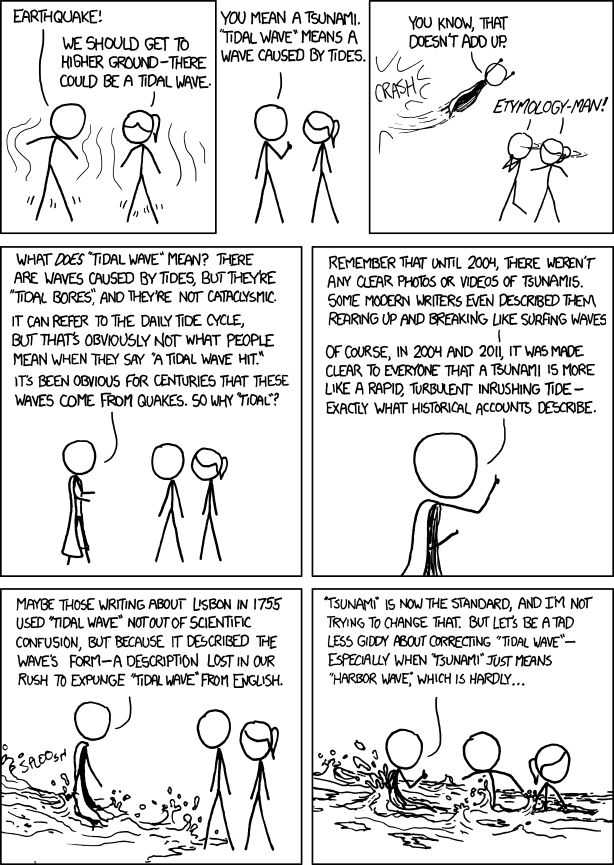January 30, 2012
#1010: Etymology-Man explain

[Cueball and Ponytail are facing each other, with wavy lines around them to indicate they are experiencing the shaking of an earthquake.]
Cueball: Earthquake!
Ponytail: We should get to a higher ground - There could be a tidal wave.
[A frame-less panel with Cueball and Ponytail, with Cueball taking a pedantic pose and raising a finger.]
Cueball: You mean a tsunami. “Tidal wave” means a wave caused by tides.
[A crash is heard, followed by Etymology-Man flying in while wearing a cape.]
Etymology-man: You know, that doesn’t add up.
Cueball and Ponytail: Etymology-man!
[Etymology-man takes a pedantic pose.]
Etymology-man: What does “tidal wave” mean? There are waves caused by tides, but they’re “tidal bores”, and they’re not cataclysmic.
It can refer to the daily tide cycle, but that’s obviously not what people mean when they say “a tidal wave hit”.
It’s been obvious for centuries that these waves come from quakes. So why “tidal”?
[Panel zooms in on Etymology-man.]
Etymology-man: Remember that until 2004, there weren’t any clear photos or videos of tsunamis. Some modern writers even described them rearing up and breaking like surfing waves [sic]
Of course, in 2004 and 2011, it was made clear to everyone that a tsunami is more like a rapid, turbulent, inrushing tide - exactly what historical accounts describe.
[Water begins to rush in. Etymology-man keeps his pedantic pose.]
Etymology-man: Maybe those writing about Lisbon in 1755 used “tidal wave” not out of scientific confusion, but because it described the wave’s form — a description lost in our rush to expunge “tidal wave” from English.
[The water is now waist-deep. Etymology-man continues to drone on, but the others start to panic.]
Etymology-man: “Tsunami” is now the standard, and I’m not trying to change that. But let’s be a tad less giddy about correcting “tidal wave” - especially when “tsunami” just means “harbor wave”, which is hardly…